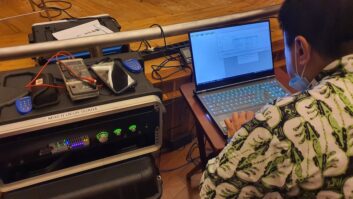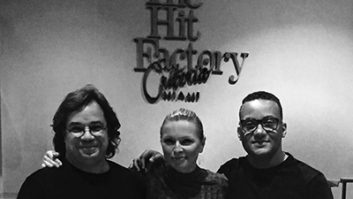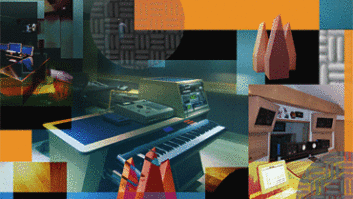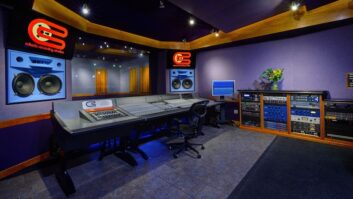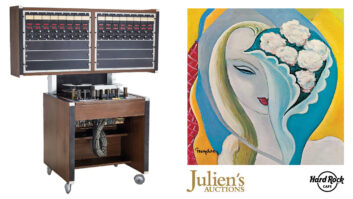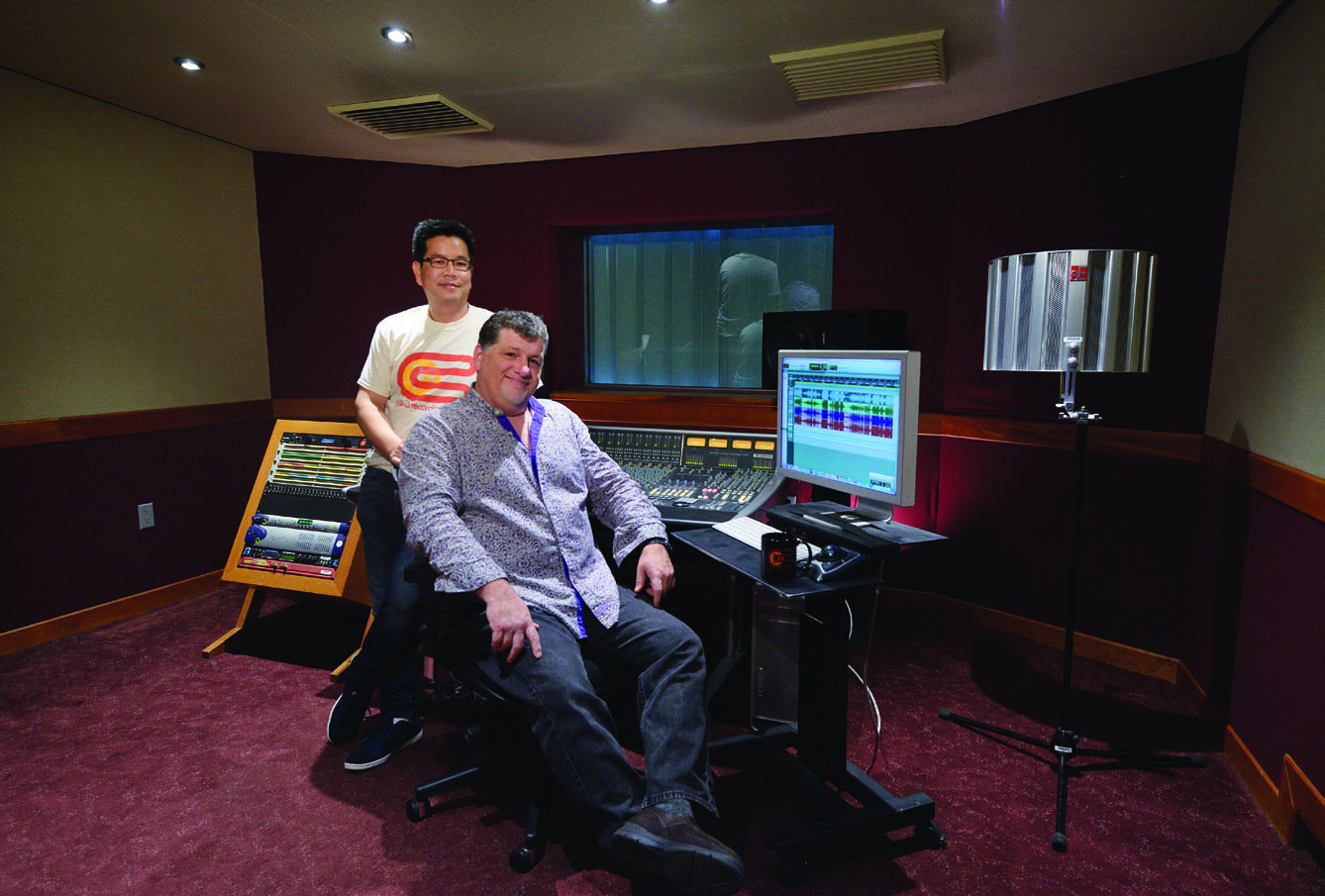
Criteria Recording Studios opened for business in 1958, and the facility that has hosted smash hit recordings by the Bee Gees, Clapton, Aretha, Michael Jackson and The Eagles is still thriving and evolving, and catering to a diverse clientele. Just a few recent examples: Alicia Keys was in Studio D working with her engineer/producer Ann Mincieli and Timbaland; Puerto Rican artist Ozuna mixed his new single “La Modela” with engineer Jose Aponte; Princess Nokia collaborated with Timbaland on music for a #NoHate campaign; British music legend Cliff Richard cut vocals with producer Fred Mollin and engineer Nick Valentin; and rapper Cardi B tracked vocals with engineer Evan Laray.
“The industry is always a roller coaster,” says Criteria’s longtime VP and general manager, Trevor Fletcher. “Our business is always changing, depending upon what genre you’re doing a lot of. If it’s an urban genre, it can depend on where the good party is, or people’s touring schedules. If it’s during Miami Music Conference or the huge multiday EDM festival, Ultra Fest, we have an influx of EDM, electronica and dance artists. Miami used to be a place where people came to get away from it all, but now these types of events affect everything.”
Criteria’s business model has been adjusted to reflect the cyclical nature of regional business: the studio employs full-time techs and assistants, but uses a stable of all freelance engineers rather than staffers.
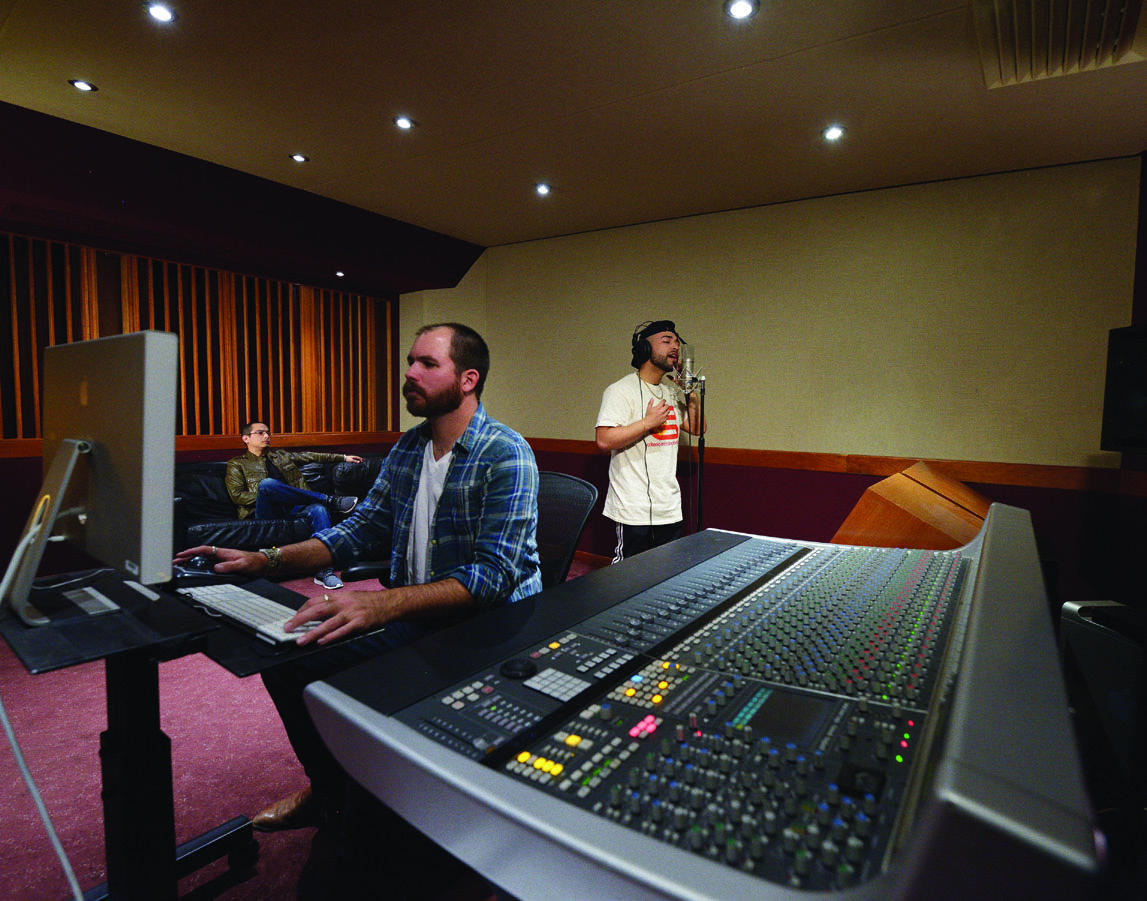
“We do so many different styles of music, it’s not economically viable or the best for our clientele [to employ staff engineers],” Fletcher explains. “It might be country, rock, rap, hip hop, classical, jazz. Recently, we’ve had in a lot of reggaeton, like Wisin & Yandel and Ozuna. There are a lot of great engineers who have come up through here, who started here as runners, then assistants, then engineers, and they are now in the marketplace, and so we take it case by case and determine which engineer is appropriate for a given session—their mindset, their personality, their bedside manner, in addition to their technical skills.
“There are engineers who specialize in vocal post work, using Melodyne or AutoTune or whatever the right tools are to create a performance without leaving artifacts. This way, I have a variety of colors in my box to provide what the individual client wants and needs.”
Variety seems to be a key to Criteria’s success on the gear side, as well. Each of the studios is equipped differently. Studio A offers an SSL 9096 J console, classic tape machines and Pro Tools HD3 system, while the “B” room’s inside-the-box setup features an Avid Control 24 surface along with Pro Tools. “C” is fitted with a vintage Neve 8078 board, Augspurger mains and more vintage recorders, and that’s the tip of the iceberg.
In recent developments, Criteria has converted a mastering studio into a production suite, Studio M7, which is available to select clients. “We have installed an SSL AWS 900 console and added some hardware,” says Fletcher. “We’ve started using it for writing camps, programming and the like.”
The studio is also always ready to make adjustments to meet individual client needs. “In the past year, we had John Storyk come in to calibrate/tweak the subwoofer settings [in Studio E, which Storyk originally designed in 1983] and ensure that the low end that our clients expect is effectively represented,” Fletcher says. “A client might come in for an extended period of time and they want the carpet to be a different color, or they want more bottom end. It’s all about creating an environment where the artist feels as comfortable as possible and as creative as possible. That has never changed.”
